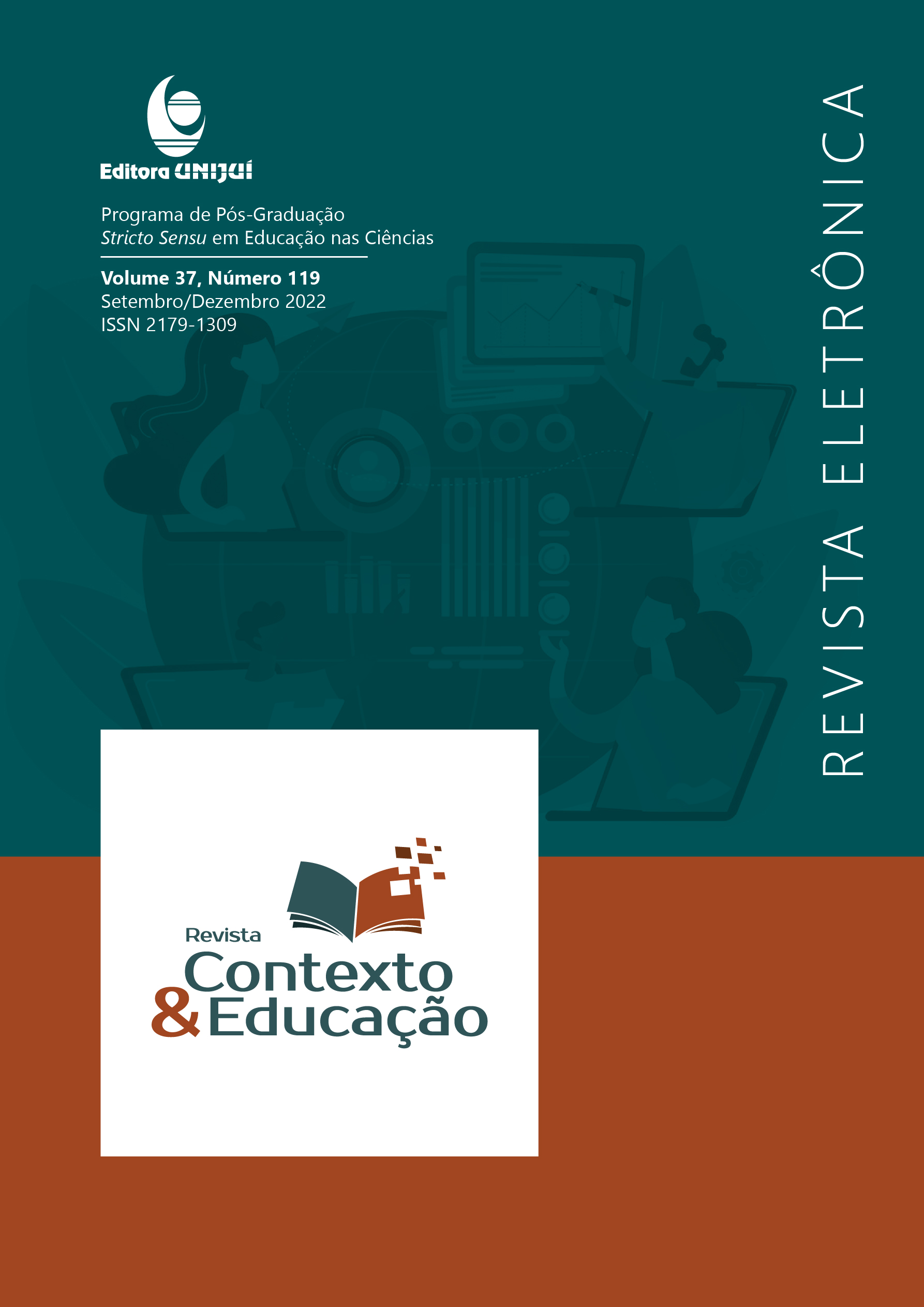Environmental education strategies on “pesticides”: a systematic review
DOI:
https://doi.org/10.21527/2179-1309.2022.119.12578Keywords:
Pesticides. Education. Educational Methods. Systematic Literature Review.Abstract
One of the challenges in Environmental Education is to promote educational actions from a perspective of critical and participatory training of citizens, on social and environmental impacts such as the indiscriminate use of pesticides. This study aimed to identify and discuss the research on Environmental Education carried out in Brazil, published in dissertations and theses that address educational teaching strategies with an emphasis on pesticides. The study is configured as a Systematic Literature Review, the data collection was carried out between the months of November and December 2020, in the Capes Theses and Dissertations Catalog (CTD/Capes) and the Theses and Digital Library databases Dissertations (BDTD). The search resulted in 12 studies, 1 thesis and 11 dissertations, produced between 2011 and 2020. The information was analyzed according to the study protocol and categorized for content analysis, allowing inferences and interpretations to be made, anchored in the scientific literature. The results of this review endorse the relevance of educational strategies to promote transformative education with critical and reflective students and future citizens, committed to citizenship and social responsibility related to the use of pesticides.
Downloads
Published
How to Cite
Issue
Section
License
Copyright (c) 2022 Revista Contexto & Educação

This work is licensed under a Creative Commons Attribution 4.0 International License.
By publishing in Revista Contexto & Educação, authors agree to the following terms:
All works are published under the Creative Commons Attribution 4.0 International License (CC BY 4.0), which allows:
Sharing — to copy and redistribute the material in any medium or format;
Adaptation — to remix, transform, and build upon the material for any purpose, even commercially.
These permissions are irrevocable, provided that the following terms are respected:
Attribution — authors must be properly credited, a link to the license must be provided, and any changes made must be indicated.
No additional restrictions — no legal or technological measures may be applied that legally restrict others from doing anything the license permits.
Notices:
The license does not apply to elements that are in the public domain or covered by legal exceptions.
The license does not grant all necessary rights for specific uses (e.g., image rights, privacy, or moral rights).
The journal is not responsible for the opinions expressed in the articles, which are the sole responsibility of the authors. The Editor, with the support of the Editorial Board, reserves the right to suggest or request modifications when necessary.
Only original scientific articles presenting research results of interest that have not been previously published or simultaneously submitted to another journal with the same purpose will be accepted.
Mentions of trademarks or specific products are intended solely for identification purposes and do not imply any promotional relationship by the authors or the journal.
License Agreement (for articles published from October 2025): Authors retain the copyright to their article and grant Revista Contexto & Educação the right of first publication.


